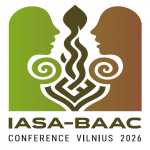Staffing
At a centre planning linguistic investigations a nucleus of staff covering different aspects of the work will be required. These will include:
staff to undertake collecting in the field;
technical help to ensure effective maintenance of the sound recording and auditory equipment;
archive staff to catalogue and arrange the collected material.
Where publication of the results is to follow, the aid of specialists - such as cartographers in making dialect maps - will be necessary. A research co-ordinator who will be concerned with planning what is to be investigated and who will supervise the programme of collection will be responsible for the complete undertaking. He should be able to consult specialists in the language in deciding the scope of the investigation, what it should include and its territorial extent.
The nature of the dialect investigation being undertaken will determine what kind of staff can be used for collecting in the field. The financial resources will dictate their number and how they should be remunerated.
To take down speech forms in transcription requires rigorous training in phonetics and, where a team of transcribers is employed in the field, even extra training is necessary in order to standardize individual practices in denoting shades of sound, in recording quantity and stress, in defining meanings of words and other matters. This was attempted in the case of the Linguistic Atlas of New England, as some nine fieldworkers helped with the investigation. Both for descriptive and comparative studies training in linguistics is also essential. As the research deals specifically with linguistic patterning the investigators should have a grounding in phonology and grammar.
In lexicographical projects the number of collectors is on a far greater scale, and it would prove too costly to take them all on staff permanently. In such projects they may be of two kinds. The trained collectors undertaking the main thrust of the investigation are usually people who have taken a degree in a linguistic subject. Their collecting can be financed by means of scholarships awarded for three or four years, so that they could collect in the same area for that period, and the total project can be managed both financially and territorially in this way. They will require training before venturing into a selected area. Some centres organize courses in word collecting so that such fieldworkers set about their task knowing what is required by the collecting archive if it is to have data that can be relied upon.
The second kind are people who will aid the project motivated by a natural interest in language: the voluntary correspondents. Finland has achieved a remarkable success in nurturing such correspondents: ordinary farmers, housewives, foresters and schoolmasters.
By means of a special magazine: Sanastaja ('word collector'), they are guided and made aware of what could be collected and are encouraged in their collecting. Such is the interest in this activity that at one time up to 1000 native correspondents sent in word collections to the archive. They are not paid for the work but may be awarded book or money prizes. Being people of the area they have the distinct advantage of knowing what local words, turns of phrase and idioms are used in the multitude of circumstances that make up human experience.
The activities of these two kinds of collectors complement each other. The trained collectors probe and elicit word forms, the voluntary collectors are awakened to be aware of the richness of their language and to offer from their vast repository of knowledge.


